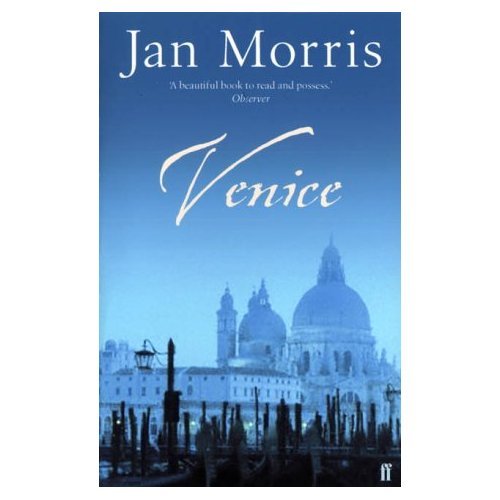Fortuitously there's a new interview with her up on the Guardian, that provides a verbal portrait of this very sharp, penetrating, sympathetic, observant human being. It can be found here.
I first discovered her when reading as many histories of Venice as I could find and had time for prior to my first visit there -- not el V's first visit, of course.
 |
| This 2006 edition of Last Letters from Hav has an introduction by Ursula K. Le Guin. |
In certain circles her novel located the imaginary small country and its same-named capital, and Last Letters from Hav (1985) and the sequel section, Hav of the Myrmidons of the 2006 reprint, is her most admired book. When asked here about Venice's influence on these two books she says:
Do you see your novel Hav as a fictionalisation of your experiences in Venice?
"No, unless subconsciously. I think places like Trieste, Beirut or Danzig were probably more in my mind when I threw myself into that fantasy, but most of it was, as far as I know, pure invention – ooh, but now I do distinctly remember plucking an electric ferry-boat directly and shamelessly from the harbour of Bergen, in Norway, and depositing it in Hav … Forgive me!"
As to the flavor of that insignificant but most important place on earth to those who live in Hav, here's a bit from a Guardian review by Ursula K. Le Guin of the 2006 imprint:
When Last Letters from Hav was published (and shortlisted for the Booker prize) in 1985, Jan Morris's well-deserved fame as a travel writer, and the unfamiliarity of many modern readers with the nature of fiction, caused unexpected dismay among travel agents. Their clients demanded to know why they couldn't book a cheap flight to Hav. The problem, of course, was not the destination but the place of origin. You couldn't get there, in fact, from London or Moscow; but from Ruritania, or Orsinia, or the Invisible Cities, it was simply a matter of finding the right train.However, Le Guin's recognition that Hav inhabits the imagined geography of Ruritania, doesn't prevent her from understanding where else, and perhaps more importantly, Hav is located -- including within time, within history:
Probably Morris, certainly her publisher, will not thank me for saying that Hav is in fact science fiction, of a perfectly recognisable type and superb quality. The "sciences" or areas of expertise involved are social - ethnology, sociology, political science, and above all, history. Hav exists as a mirror held up to several millennia of pan-Mediterranean history, customs and politics. It is a focusing mirror; its intensified reflection sharply concentrates both observation and speculation. Where have we been, where are we going? Those are the questions the book asks. It poses them through the invention of a place not recognised in the atlas or the histories, but which, introduced plausibly and without violence into the existing world, gives us a distanced, ironic and revelatory view of everything around it. The mode is not satiric fantasy, as in the islands Gulliver visited; it is exuberantly realistic, firmly observant, and genuinely knowledgeable about how things have been, and are now, in Saudi Arabia, or Turkey, or Downing Street. Serious science fiction is a mode of realism, not of fantasy; and Hav is a splendid example of the uses of an alternate geography. If, swayed by the silly snobbery of pundits as contemptuous of science fiction as they are ignorant of it, you should turn away from Hav, that would be a shame and a loss.
This capsulates the admiration of this work of Morris's I felt from the moment I encountered it in the 1980's (when, perhaps not coincidentally I also discovered Fernand Braudel magnificent, ground-breaking histories of the Mediterranean regions and their hinterlands). This also explains why it feels on Earth Day, as we admit slowly to ourselves that our efforts on our planetary home may well have made it unhabitable in the not at all distant future, Hav is a read for today.





No comments:
Post a Comment